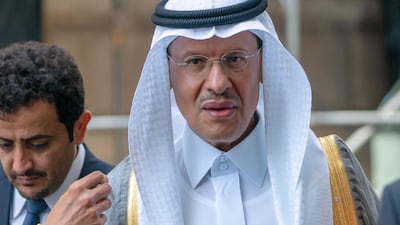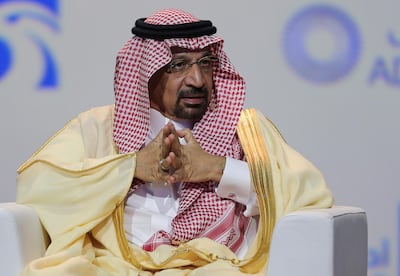Saudi Arabia appointed Prince Abdulaziz bin Salman as the kingdom's new energy minister who replaces the long time veteran of the industry Khalid Al Falih and is expected to maintain the country's market and production policies.
The new appointment announced by the state news agency SPA on Sunday, citing a royal decree. is unlikely to change the kingdom's energy policy, which has remained consistent whenever the government is reshuffled. Prince Abdulaziz has served in the energy ministry for over a decade and is the brother of Crown Prince Mohammad bin Salman who oversees the kingdom's economic policy.
“The Saudi oil policy is not expected to change. It is not set by one person. Its principles are well-established," said Anas Al Hajji, Dallas-based independent oil analyst. "Changing the energy minister doesn't change the established oil policy that Prince Abdulaziz himself helped draft...he brings continuity and unmatched institutional experience.”
“It will be business as usual for the whole Saudi Arabian oil and gas industry," said Jaafar Al Taie, managing director of the UAE based Manaar Energy. "I don’t foresee any major changes to the policy.” The kingdom “pretty much runs [the] energy space as a corporation, it's Aramco Limited and it’s always been like that, very much responding to market dynamics and very much responding to market fundamentals," he added.
Saudi Arabia, which is the defacto leader of Opec will continue to cut production to stabilise markets despite changes at the oil ministry. The kingdom has cut production from the end of 2018 to below 10 million barrels per day to rebalance the market as part of an agreement between Opec producers and non-members led by Russia. The alliance, known as Opec+, is scheduled to meet in Abu Dhabi on September 12 to review their production agreement as they look to tighten the oil market.
UAE energy minister Suhail Al Mazrouei congratulated his new counterpart on Sunday ahead of the World Energy Congress being held in Abu Dhabi this week.
"He is not new to the Saudi Energy ministry or Opec. He’s one of the oldest contributors. He’s a state minister. I’m sure he will continue doing a great job like his predecessor Khalid Al Falih," Mr Al Mazrouei told reporters in Abu Dhabi. "Khalid Al Falih led Opec through the Opec non-Opec deal and Khalid Al Falih has done a great job and I have no doubt that his Royal Highness Prince Abdulaziz will do a great job as well. We look forward to hosting him at the JMMC [Opec's Joint Ministerial Monitoring Committee]. I don’t see any impact on the meeting. It’s in very capable hands."
Mr Al Falih’s future had become uncertain after he lost the portfolio for industry and mineral resources, which had been part of the energy ministry.
Earlier in the week Saudi Arabia appointed Yasir Al Rumayyan, the governor of the kingdom’s Public Investment Fund, as chairman of Saudi Aramco, replacing Mr Al Falih.
The move comes as the state oil company looks to distance the energy ministry from Aramco to avoid a conflict of interest and as it aims to tap broader investor appeal ahead of a planned listing.
"The current Saudi philosophy of maintaining active control of oil market balances by calibrating supply comes from the highest levels of the kingdom’s leadership and there are no signs or reasons to believe that it will change," Vanda Insights, Singapore-based energy consultancy, said in a briefing note on Sunday.
The co-operation with Moscow, which Russian President Vladimir Putin and King Salman advanced, advocating for the creation of a supergroup of producers to counter US shale dominance is expected to continue.
Mr Al Falih had congratulated Prince Abdulaziz in a tweet, "wishing him all the best in leading this important sector."
Last week a royal decree from King Salman split the energy, industry and mineral resources ministry into two, and had left the core energy portfolio with Mr Al Falih. Businessman Bandar Alkhorayef was appointed head of the new industry and mineral resources ministry, which will assume responsibility for the portfolio in the next fiscal year.
The move is seen as a streamlining of efforts as the kingdom prepares to list 5 per cent of Saudi Aramco at the end of this year or early 2020, according to recent reports.


